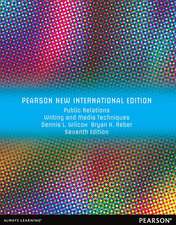The Dancer Defects
Autor David Cauteen Limba Engleză Paperback – 21 iul 2005
| Toate formatele și edițiile | Preț | Express |
|---|---|---|
| Paperback (1) | 433.17 lei 31-38 zile | |
| Oxford University Press – 21 iul 2005 | 433.17 lei 31-38 zile | |
| Hardback (1) | 458.03 lei 31-38 zile | |
| OUP OXFORD – 4 sep 2003 | 458.03 lei 31-38 zile |
Preț: 433.17 lei
Preț vechi: 552.51 lei
-22% Nou
Puncte Express: 650
Preț estimativ în valută:
82.88€ • 86.54$ • 68.60£
82.88€ • 86.54$ • 68.60£
Carte tipărită la comandă
Livrare economică 24-31 martie
Preluare comenzi: 021 569.72.76
Specificații
ISBN-13: 9780199278831
ISBN-10: 0199278830
Pagini: 818
Ilustrații: numerous black and white halftones
Dimensiuni: 150 x 229 x 40 mm
Greutate: 1.25 kg
Ediția:Revised
Editura: Oxford University Press
Colecția OUP Oxford
Locul publicării:Oxford, United Kingdom
ISBN-10: 0199278830
Pagini: 818
Ilustrații: numerous black and white halftones
Dimensiuni: 150 x 229 x 40 mm
Greutate: 1.25 kg
Ediția:Revised
Editura: Oxford University Press
Colecția OUP Oxford
Locul publicării:Oxford, United Kingdom
Recenzii
Review from previous edition This is a wonderful biography of the Cold War, fluent and crammed with detail
for the big picture as well as plenty of little ones, the result is masterly
This is a profound study of a vast subject which was, we now see, a vital aspect of the Cold War. One now eagerly awaits the second volume.
Well-written, meticulously researched, peopled with a cast from Stalin to Nureyev, Eisenstein to Jackson Pollock.
This is a titanic achievement.
... impressive ... Caute encompasses theatre, film, painting, sculpture, classical music, jazz, rock and ballet - with a text that reads with virtuoso fluency.
... curious and absorbing new book ... an important book.
This is a remarkably thorough and well-researched book, and will become the standard work on the subject.
Extraordinary stories ... Caute is at his best when he drily lampoons today's (mostly) American academics who retroactively see cold war cultural politics in just abouteverything.
for the big picture as well as plenty of little ones, the result is masterly
This is a profound study of a vast subject which was, we now see, a vital aspect of the Cold War. One now eagerly awaits the second volume.
Well-written, meticulously researched, peopled with a cast from Stalin to Nureyev, Eisenstein to Jackson Pollock.
This is a titanic achievement.
... impressive ... Caute encompasses theatre, film, painting, sculpture, classical music, jazz, rock and ballet - with a text that reads with virtuoso fluency.
... curious and absorbing new book ... an important book.
This is a remarkably thorough and well-researched book, and will become the standard work on the subject.
Extraordinary stories ... Caute is at his best when he drily lampoons today's (mostly) American academics who retroactively see cold war cultural politics in just abouteverything.
















